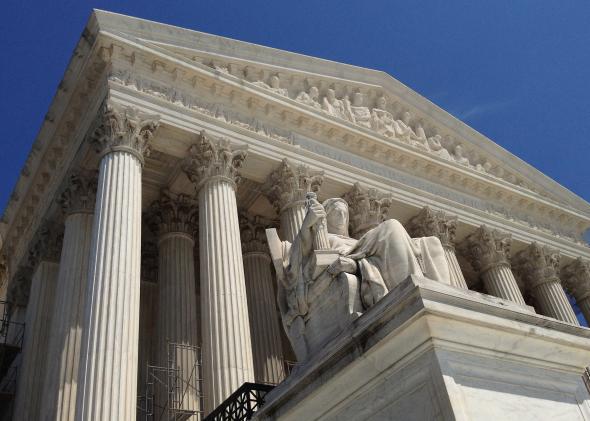On Monday, the Supreme Court announced that it had declined to review a federal appeals court’s decision upholding New Jersey’s ex-gay conversion therapy ban. That law, signed by Gov. Chris Christie in 2013, forbids any licensed therapist from attempting to “convert” minors from gay to straight. (Gender conversion therapy, which is sometimes forced on transgender individuals in a similar fashion, was not addressed in this law.) It only applies to children under 18, and doesn’t affect the rights of unlicensed private counselors. The Supreme Court has already refused to review a nearly identical California law upheld by a different appeals court.
Obviously, it’s difficult from these two decisions to get a glimpse into the justices’ thoughts on ex-gay conversion therapy. Still, I’d take Monday’s rejection as reason for very cautious optimism. The court often refuses to address an issue until a “circuit split” emerges—that is, until different appeals courts have reached different conclusions about a matter of law. But any four justices can vote to bring a case before the court, and sometimes a bloc of concerned justices will intervene absent a circuit split when they feel a lower court has gone egregiously awry.
The court’s conservatives have now had two chances to force the court to consider whether ex-gay conversation therapy bans violate therapists’ First Amendment right to free speech. Both times, they’ve declined. That doesn’t mean the court’s anti-gay wing thinks these bans are constitutionally sound—although they definitely are. But it does indicate that the conservative justices aren’t eager to strike laws protecting children from this miserable, ineffective quackery. The court’s right-wing bloc will, no doubt, soon have more opportunities to march these bans up the gallows. But their clear hesitation to do so suggests that, at the very least, they aren’t itching to bring a new gay rights battle before the court.
